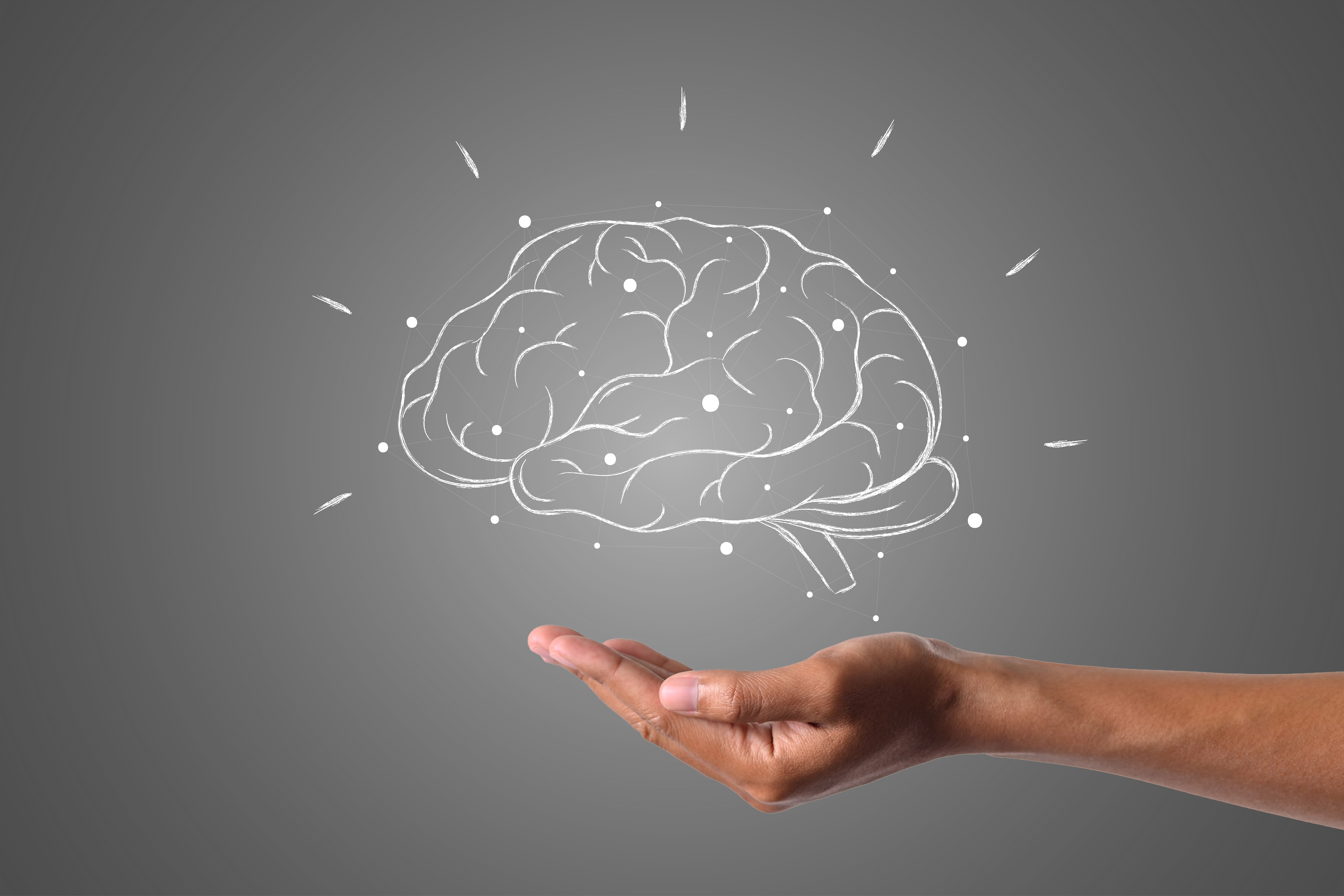Mental Wellness Made Easy: 7 Ways to Boost Your Wellbeing

Mental well-being is a state of mind where an individual feels
balanced, resilient, and able to cope with life’s challenges. It
encompasses our emotional, psychological, and social health,
influencing how we think, feel, and interact with others.
Maintaining mental well-being is essential because it affects every
aspect of our lives, from our relationships to our ability to handle
stress, make decisions, and enjoy life. Prioritizing mental health
is crucial for leading a fulfilling and healthy life.
There are many practical steps you can take to nurture
and protect your mental well-being. Whether you're looking for ways
to reduce stress, improve your mood, or simply maintain a healthy
mindset, there are a variety of strategies that can help.
1. Spend more time in nature
Scientific research consistently shows that spending time in nature
has a significant impact on reducing stress levels. Studies have
found that individuals who engage in outdoor activities experience a
notable decrease in cortisol levels, the hormone closely linked to
stress responses. Activities like walking through a forest or
spending time near bodies of water, such as lakes or the ocean, have
proven especially effective in this regard. The soothing sounds of
nature, including the rustling of leaves or the chirping of birds,
also have a calming and restorative effect on the nervous system.
Beyond stress reduction, exposure to nature has been shown to
improve concentration and alleviate symptoms of mood disorders.
People who regularly spend time outdoors often report enhanced
mental clarity, better focus, and heightened creativity. The
presence of greenery, natural landscapes, and exposure to daylight
work together to stimulate the nervous system, leading to an overall
boost in mood and well-being.
2. Cut back on ultra-processed foods
A recent study published in the International Journal of Food
Sciences and Nutrition highlights the strong link between unhealthy
diets and the prevalence of mental health issues among adults.
Researchers from Loma Linda University in the United States analyzed
data from over 240,000 participants collected over a decade through
telephone surveys. Their findings indicate that diets high in
processed foods, calories, and low in essential nutrients
significantly contribute to the development of mental health
problems.
The study revealed that foods high in sugar are particularly
associated with a greater likelihood of developing bipolar disorder,
a condition characterized by alternating episodes of mania and
depression. Additionally, a diet rich in fried foods, sugary items,
and processed grains was linked to an increased risk of depression.
Importantly, the connection between diet and mental health persisted
regardless of factors such as age, gender, education level, or
income. This suggests that the quality of one's diet plays a crucial
role in mental well-being, independent of other demographic factors.
As the evidence mounts, it becomes clear that what we
eat not only affects our physical health but also has a profound
impact on our mental state. These findings underscore the importance
of making healthier food choices to support both body and mind.
3. Eat more of healthy foods
When it comes to mental health, the connection between what you eat
and how you feel is stronger than you might think. A well-balanced
diet doesn’t just nourish your body—it also plays a crucial role in
supporting your mental well-being. The foods you choose can either
help protect against mental health issues or contribute to them,
making it essential to pay attention to your daily diet.
A diet rich in fruits, vegetables, whole grains, seeds, and
unsaturated fats is particularly beneficial for mental health. These
nutrient-dense foods provide your brain with the essential vitamins,
minerals, and antioxidants it needs to function optimally. For
example, fruits and vegetables are packed with vitamins C and E,
which have been shown to reduce inflammation and oxidative
stress—both of which are linked to mental health disorders like
depression and anxiety. Whole grains, such as oats, quinoa, and
brown rice, are another crucial component of a brain-healthy diet.
These foods are high in fiber and help stabilize blood sugar levels,
preventing the mood swings and irritability that can result from
fluctuating glucose levels. Additionally, whole grains are rich in B
vitamins, which are essential for brain health and the production of
neurotransmitters that regulate mood.
Incorporating more
fruits, vegetables, whole grains, seeds, and unsaturated fats into
your diet can be a simple yet powerful way to support your mental
health. By making mindful choices about what you eat, you can help
protect your brain, improve your mood, and enhance your overall
well-being. So the next time you reach for a snack or plan a meal,
consider how it might affect not just your body, but your mind as
well.
4. Exercise
Physical activity is a powerful tool for managing emotional
difficulties, such as stress, anxiety, and symptoms of depression.
Engaging in regular exercise not only helps to regulate mood and
improve overall well-being but also offers a host of mental health
benefits that can significantly enhance your quality of life.
One of the primary ways physical activity benefits
mental health is through the release of endorphins. Often referred
to as "feel-good" hormones, endorphins act as natural painkillers
and mood enhancers, helping to reduce feelings of discomfort and
elevate mood. Additionally, exercise stimulates the production of
other key neurotransmitters, including serotonin, dopamine, and
norepinephrine. These chemicals play crucial roles in mood
regulation, motivation, and emotional stability, making regular
physical activity a valuable tool in preventing and treating mood
disorders like depression.
Beyond the immediate effects
of these neurotransmitters, regular physical activity also
contributes to long-term mental health by reducing levels of
cortisol, the body's primary stress hormone. Elevated cortisol
levels are often a response to chronic stress and can have
detrimental effects on health, including the development of
depression and heart disease. By lowering cortisol levels, exercise
helps to alleviate stress and anxiety, while also improving your
ability to cope with challenging situations.
Ultimately,
the connection between physical activity and mental well-being is
clear. By engaging in regular exercise, you not only support your
physical health but also create a strong foundation for mental
resilience and emotional balance. Whether you're dealing with
stress, anxiety, or depression, incorporating physical activity into
your life can be a transformative step toward better mental health.
5. Connect with others
Healthy relationships are vital for our mental well-being. They offer essential emotional support, which can help reduce stress and alleviate feelings of anxiety. When we engage in supportive and understanding interactions, we experience increased self-esteem and confidence, contributing to a more positive self-image and emotional resilience. Furthermore, positive relationships enhance our ability to manage emotions effectively. They provide a safe space for sharing feelings and resolving conflicts, which helps in maintaining emotional balance. Engaging with loved ones also leads to greater happiness and life satisfaction, as shared experiences and meaningful connections enrich our lives. Additionally, supportive relationships can encourage healthier lifestyle choices, such as regular exercise and balanced nutrition. This holistic support further reinforces our mental health, making it clear that fostering and maintaining strong, positive relationships is crucial for overall emotional well-being.
6. Learn new things and be creative
Learning new things can be a powerful boost for our mental
well-being, offering a variety of benefits that contribute to a
healthier and more fulfilling life. Engaging in the process of
acquiring new skills or knowledge not only enriches our lives but
also has profound effects on our mental state.
When we learn something new, whether it's a new language, a musical
instrument, or a sport, we activate different parts of our brain,
which can enhance cognitive function and improve mental clarity.
This process of mental stimulation helps keep the brain active and
agile, reducing the risk of cognitive decline and promoting overall
mental health. Moreover, mastering new skills often brings a sense
of accomplishment and satisfaction. The process of setting goals and
achieving them, no matter how small, builds confidence and a sense
of purpose. This boost in self-esteem and achievement can counteract
feelings of inadequacy or self-doubt, contributing to a more
positive self-image. Learning also offers a valuable distraction
from daily stressors and negative thoughts. By immersing yourself in
a new hobby or skill, you redirect your focus and energy, providing
a healthy escape from anxiety and stress. Engaging in activities
that you find enjoyable and fulfilling can act as a form of therapy,
helping you to manage and reduce stress levels.
7. Try to improve your sleep
Sleep is a fundamental biological process essential for overall
health. It significantly impacts bodily regeneration, memory,
learning, and emotional well-being. Proper sleep helps regulate
various biological and psychological functions, making it a crucial
component of mental health.
Disruptions in sleep, such as insomnia or excessive sleepiness, are
serious public health concerns linked to numerous mental and
physical health issues. Insufficient sleep is strongly associated
with the development of mental disorders, including depression,
anxiety, bipolar disorder, and even schizophrenia. Individuals with
sleep disorders are often more vulnerable to these conditions, and
neglecting sleep issues can hinder treatment progress. Quality and
adequate quantity of sleep are critical for maintaining mental
health. Sleep supports bodily repair, processes information,
consolidates memory, and regulates emotions. Without sufficient
sleep, individuals are at higher risk for severe mental health
issues like depression and anxiety. Therefore, prioritizing healthy
sleep habits is essential for overall well-being and quality of
life.
To enhance your rest, establish a consistent sleep
routine by going to bed and waking up at the same time every day,
even on weekends. Create a relaxing pre-sleep ritual, such as
reading, to help signal to your body that it’s time to wind down.
It’s also beneficial to limit screen time at least an hour before
bed, as the blue light from devices can interfere with your ability
to fall asleep. Ensure your sleep environment is conducive to rest
by keeping your bedroom dark, cool, and quiet, and invest in a
comfortable mattress and pillows. Finally, be mindful of your diet
by avoiding heavy meals, caffeine, and alcohol close to bedtime.
Adopting these habits can lead to better sleep and improved mental
health.




